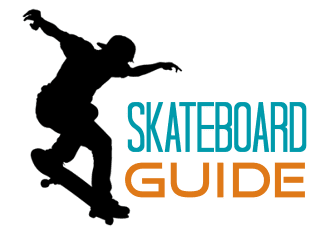Skateboarding is an exhilarating sport that brings a rush of adrenaline and a sense of freedom. But for many beginners, fear can be a major roadblock. The thought of falling and getting injured is enough to make anyone hesitant. However, overcoming this fear is essential to enjoying the sport and progressing in your skills. In this article, we’ll explore some effective tips and techniques to help you conquer your fear of skateboarding.

Understanding the Fear
Fear is a natural response, especially when trying something new and potentially dangerous like skateboarding. It’s important to recognize that feeling scared is okay and quite common. Most skateboarders have faced this fear at some point. The key is to not let it control you. Understand that your fear is a protective mechanism, but it can be managed with the right mindset and approach. Accepting that fear is a part of the learning process can help you move past it.
Starting Small
One of the best ways to overcome fear is to start small. Begin with simple tricks and gradually work your way up. This allows you to build confidence and develop your skills without overwhelming yourself. For example, practice riding on flat ground before attempting ramps or complex tricks. Using a skateboard trainer can also be beneficial as it provides stability and helps you get comfortable with the basics. Starting small sets a solid foundation and makes the learning process less intimidating.
Practicing Falling
Learning how to fall on a skateboard is crucial. It might sound counterintuitive, but knowing how to fall correctly can significantly reduce your risk of injury. When you feel yourself losing balance, try to roll rather than catch yourself with your hands. This distributes the impact and helps prevent serious injuries. Practicing falling in a controlled environment, like on grass or a padded surface, can help you get used to the sensation without the fear of getting hurt.
Building Confidence
Confidence is a key factor in overcoming fear. To build confidence, practice regularly and set small, achievable goals. Each time you accomplish a goal, no matter how minor, your confidence will grow. Visualization is another powerful tool. Imagine yourself successfully performing a trick or maneuver. This mental practice can boost your confidence and reduce anxiety. Surrounding yourself with supportive friends who encourage and motivate you can also make a significant difference.
Mastering the Basics
Before moving on to more advanced tricks, it’s crucial to ensure you have a strong grasp of the basics. Knowing how to balance, turn, and stop on your skateboard is essential for building a solid foundation. Spend ample time mastering these fundamental skills, as they form the core of all complex maneuvers. Start by practicing in a controlled environment, like a smooth, flat surface, where you can focus solely on your technique.
Gradually, challenge yourself by riding in different environments and conditions. Try skateboarding on rougher surfaces, slight inclines, and various terrains to enhance your adaptability. This versatility will boost your confidence and make you more comfortable handling unexpected situations.
Additionally, practice your stance and foot placement regularly. A stable and balanced stance is key to executing tricks successfully. Work on shifting your weight smoothly from one foot to the other, as this will help you maintain control of your skateboard. The more comfortable you are with these basics, the less fear you’ll have when trying new things. Building a strong foundation in skateboarding not only reduces the risk of injury but also makes learning advanced tricks more accessible and less intimidating.
Learning to Drop In
Dropping in is one of the scariest parts of skateboarding for beginners. The key to learning how to drop in on a skateboard is to commit fully. Hesitation can lead to falls and injuries. Start by practicing on smaller ramps and gradually work your way up to larger ones. Focus on shifting your weight forward and maintaining your balance. Remember, practice makes perfect. The more you practice, the more confident you’ll become.
Handling Setbacks
Setbacks are a natural part of learning any new skill, and skateboarding is no exception. Falling and failing are inevitable, but how you handle these setbacks is what truly matters. Instead of getting discouraged, view each fall as a learning opportunity. Analyze what went wrong, and identify specific areas for improvement. Perhaps you didn’t shift your weight correctly, or maybe your stance was off. Understanding these details can help you refine your technique.
It’s essential to maintain a positive attitude and stay determined. Celebrate small victories, even if they seem insignificant. Progress in skateboarding is often gradual, and every minor improvement counts. Surround yourself with a supportive community, whether it’s friends who skate or online groups where you can share experiences and get advice. Remember, every professional skateboarder has faced numerous setbacks. What sets them apart is their resilience and willingness to learn from their mistakes. Embrace the process, keep practicing, and you’ll find that each setback is just a stepping stone towards becoming a better skateboarder.

Finding Inspiration
Sometimes, seeing others succeed can be a great motivator. Watch videos of skilled skateboarders and pay attention to their techniques. Notice how they handle their boards, perform tricks, and recover from falls. This can provide valuable insights and inspire you to keep pushing forward. Reading stories about professional skateboarders who have faced and overcome their fears can also be encouraging. Knowing that others have been in your shoes and succeeded can give you the boost you need.
Conclusion
Overcoming the fear of skateboarding takes time, patience, and consistent practice. By understanding your fear, starting small, practicing falling, building confidence, mastering the basics, learning to drop in, handling setbacks, and finding inspiration, you can conquer your fears and enjoy the thrill of skateboarding. Remember, every skateboarder, even the pros, started with the same apprehensions. Embrace each fall as a stepping stone to improvement. Stay persistent, and with each ride, you’ll find yourself growing more confident and skilled. Skateboarding is about perseverance and enjoying the journey, so keep pushing forward and savor every moment on your board.






